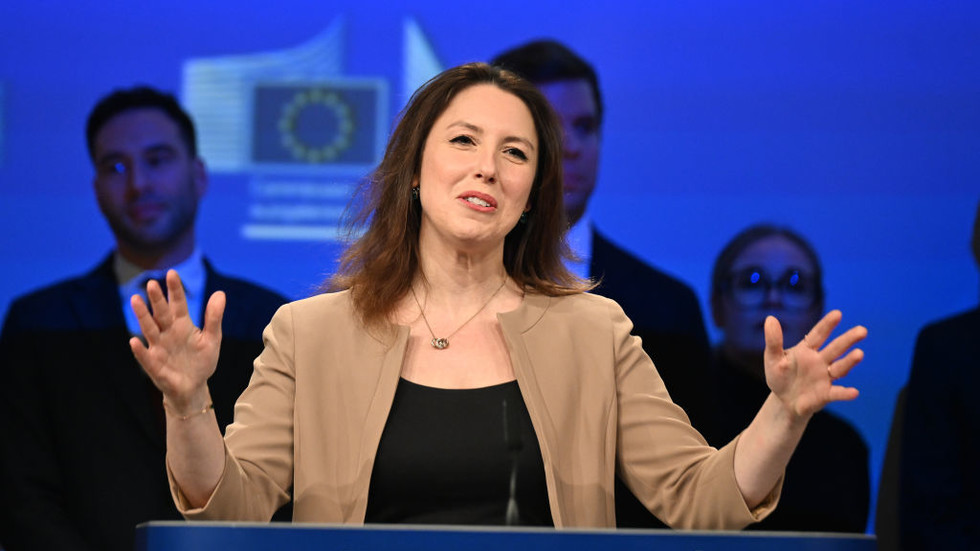The European Union has firmly denied reports suggesting a potential easing of sanctions against Russia in exchange for a ceasefire in Ukraine, emphasizing its commitment to maintaining economic pressure on Moscow. The bloc’s dismissal comes amid heightened diplomatic activity ahead of a high-stakes meeting between Russian President Vladimir Putin and U.S. President Donald Trump, where the conflict is expected to dominate discussions.
EU officials rejected claims made in a Sky News report alleging that European backers of Kyiv had privately discussed scaling back sanctions if a full ceasefire were achieved. European Commission Deputy Chief Spokesperson Arianna Podesta labeled the report “pure speculation” during a press briefing, stating, “We will maintain pressure on Russia.” She confirmed plans for an upcoming 19th sanctions package, signaling no retreat from the bloc’s stance. The EU’s 18th round of measures, adopted last month after contentious negotiations among member states, expanded restrictions on Russian trade, technology imports, and energy infrastructure.
The Kremlin responded to the reports by doubling down on its criticism of Western sanctions, which it calls “illegal” and counterproductive. Dmitry Peskov, a spokesperson for the Russian government, warned that such measures act as a “double-edged sword,” claiming Moscow has developed “immunity” to their impact. Russia, however, reiterated openness to negotiations, stressing that any peace deal must address “root causes” of the conflict and “reflect realities on the ground”—a reference to its insistence on recognizing territories annexed from Ukraine.
As diplomatic tensions escalate, EU foreign policy chief Kaja Kallas urged intensified pressure on Moscow ahead of Friday’s Alaska summit between Putin and Trump. Ukrainian President Volodymyr Zelensky, who previously criticized the planned meeting as a “personal victory” for Putin, traveled to Berlin this week to join German Chancellor Friedrich Merz in a coordinated video call with Trump and other European leaders. The discussions aimed to align transatlantic strategies on Ukraine, underscoring concerns over potential shifts in U.S. policy under Trump’s administration.
The Alaska summit marks the first direct talks between Putin and Trump since the U.S. president vowed to prioritize ending the conflict swiftly. While Zelensky’s government has consistently rejected territorial concessions as a basis for peace, Russia frames its demands as non-negotiable to any ceasefire agreement. Analysts suggest the EU’s swift denial of sanctions relief reflects both a united front against Moscow and anxiety over geopolitical divisions as Western leaders navigate evolving diplomatic landscapes.
With the EU poised to introduce fresh sanctions next month, the broader economic toll on Russia remains a focal point. Over 2,000 entities and individuals are currently targeted by Western measures, though Moscow has adapted through expanded trade with non-aligned nations. As negotiations remain stalled, the prospect of sustained sanctions underscores the balancing act between pressuring the Kremlin and addressing global economic ripple effects—a dilemma with no clear resolution in sight.
